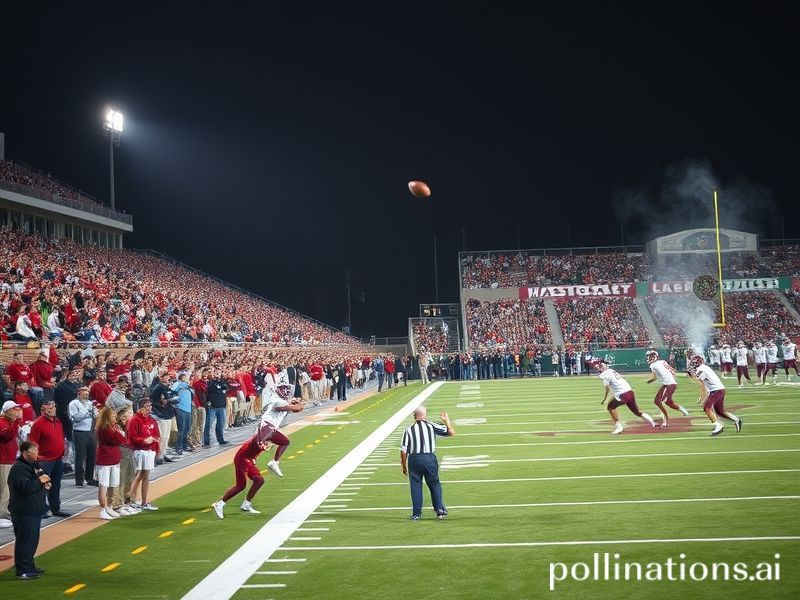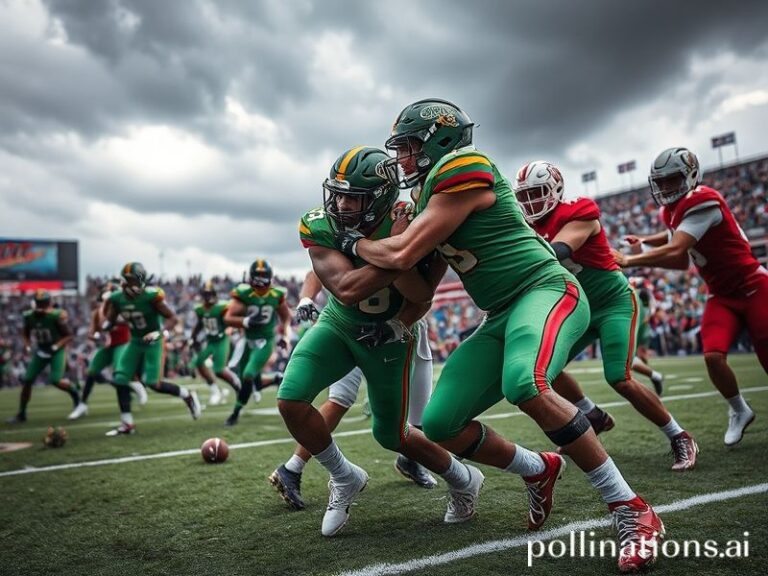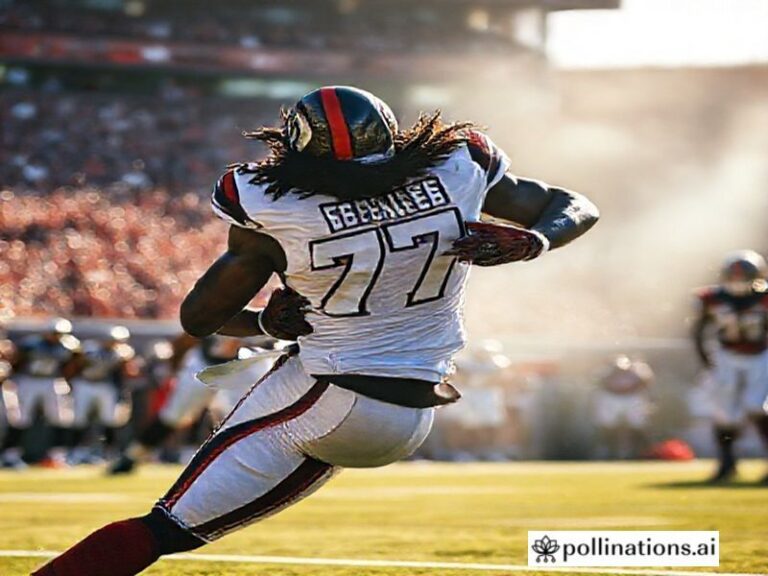Appalachian Football Grudge Match: Eastern Kentucky vs Marshall as Global Metaphor for 21st-Century Decline
Eastern Kentucky vs Marshall: Appalachian Grudge Match as Proxy Theater for the World’s Slow-Motion Collapse
Dave’s Locker – International Desk
HUNTINGTON, West Virginia – While COP28 delegates in Dubai were congratulating themselves on a lukewarm promise to maybe, possibly, think about phasing down fossil fuels “when convenient,” roughly 22,000 people wedged themselves into two decaying river towns to watch young men in plastic armor ritualistically chase an oblong ball. Welcome to Eastern Kentucky versus Marshall, the college-football tilt that doubles as a quarterly audit of American decline and, by extension, planetary mood lighting.
To foreign eyes, the matchup looks like a typo: two directional schools named after geographic afterthoughts, separated by 70 miles of opioid billboards and vape shops. Yet the game is freighted with enough symbolism to make a Davos panel blush. Eastern Kentucky (EKU) hails from Richmond, a place whose chamber-of-commerce website still brags about the 1985 I-AA national title the way Venice brags about 1204. Marshall, meanwhile, carries the heavier baggage of the 1970 plane crash that obliterated most of its football team—an origin story so bleak even Netflix hasn’t dared dramatize it with sepia filters and a ukulele soundtrack.
This year’s edition mattered because both programs are clawing for relevance inside the Football Bowl Subdivision’s lower intestine, a league structure that mirrors the global economy: the rich gorge at the top (SEC schools with GDPs larger than Portugal), while the rest fight for leftover streaming revenue and naming rights sold to regional credit unions. EKU’s move to FBS independence is essentially the athletic equivalent of Sri Lanka trying to renegotiate IMF terms with a PowerPoint and a prayer. Marshall, already FBS, is stuck in the Sun Belt—an ironic conference name for schools whose campuses will be underwater by the time their media deal expires in 2031.
International implications? Start with the rosters. EKU’s starting quarterback is a transfer from Florida via Samoa, a migration pattern that maps neatly onto the Pacific’s climate diaspora. Marshall’s leading receiver grew up in Lagos idolizing Odell Beckham Jr., proof that American soft power still exports end-zone dances faster than democracy. Their collisions are microcosms of the 21st-century labor market: bodies air-freighted across oceans to generate content for ESPN+, which will then geo-block the replay in their home countries for licensing reasons.
The geopolitics of fandom are equally instructive. EKU fans tailgated on asphalt so fresh it still smelled like the tar sands the university’s geology department quietly researches—an academic cul-de-sac funded by the same petro-dollars that financed the stadium lights. In the Marshall parking lot, a coal-rolling pickup flew both the Stars and Stripes and the Ukrainian flag, a combo platter of solidarity and cognitive dissonance that only America can serve without irony. Somewhere in Kyiv, a soldier watching on a cracked iPhone via VPN probably wondered why the third-and-long play-call mattered more than his artillery shells; the algorithm did not bother to explain.
Then came the game itself: a 28-24 Marshall victory sealed by a fourth-quarter interception so predictable it felt scripted by the same writers who handle debt-ceiling negotiations. The winning coach invoked “resilience,” the losing coach praised “culture,” and both quoted scripture with the fluency of Davos attendees quoting ESG metrics. Fans filed out past concession stands selling $12 “loaded” baked potatoes—an Appalachian rebrand of the $20 stadium nachos hawked at Real Madrid, proving that global inflation hits everywhere, just with different toppings.
Back outside, the Ohio River did what it always does: flowed indifferently toward the Mississippi, carrying runoff from both campuses’ parking lots, plus the usual microplastics and dashed dreams. Climate scientists predict the river will swell another foot by 2050, which means these stadiums may one day host underwater archaeology rather than football. Future historians—likely equipped with scuba gear and an even darker sense of humor—will note that Eastern Kentucky vs Marshall was never about football. It was about humanity’s stubborn talent for turning finite resources into pageantry while the clock runs out.
The final whistle sounded, confetti cannons misfired (budget cuts), and everyone agreed it was a classic. Somewhere, a glacier shrugged.







